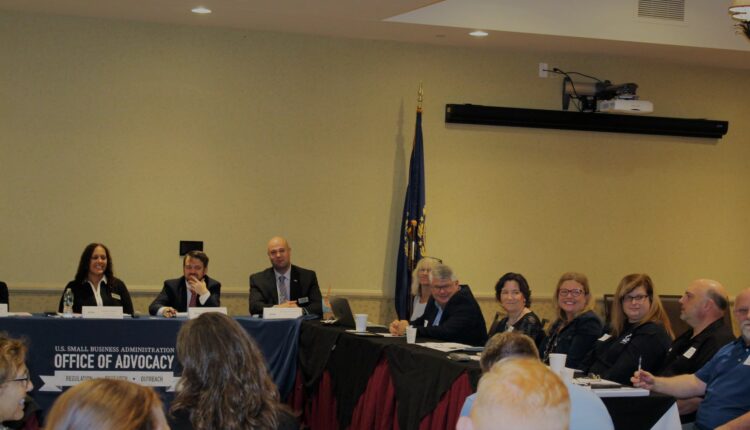North Conway Regulatory Roundtable – Federal Regulatory Issues and Trees: Both Plentiful
By Tom Rossomando, National Manufacturing and Technology Advocate
Advocacy recently visited New Hampshire to hold a regional regulatory roundtable. The hospitality industry was well represented. One resort owner had concerns regarding H2-B visas issued to the same employees every year. He felt there should be a more efficient way to apply and get approval for the same individuals who work at his resort year after year. The process was delayed two months this year and had a negative effect on their business.
Another small business owner from the tower construction and telecom industry who was also a part of the National Association of Tower Erectors (NATE) is advocating for OSHA to adopt the ANSI standard. This standard was developed by industry people and is stricter than current standards. NATE is pushing for increased standards. All they ask is for a level playing field.
Another common issue we heard a lot was that OSHA’s standards are very hard to read and understand. They feel that all too often it is left to the OSHA inspector to interpret violations. If they can make the rules in plain easily understood language more companies can easily comply.
A cigar company owner felt that rolling cigars is craft-like and not manufacturing, and therefore this function as well as packaging should be regulated differently. The cigar industry feels they are being unfairly targeted. The belief is they are being held to a standard of stringent pre-market approval process, user fees, labeling requirements and other applications that even large companies cannot comply with. They believe that the onerous regulations will wipe out over 50 percent of the industry. The State of New Hampshire requires that one owner’s business model of a cigar and cocktail lounge must have 60 percent sales from cigars. Currently they are able to meet this threshold however, if the new federal regulations take affect they will have to change their business model.
The motor coach industry has issues with the way driving time is calculated. Many times they will drop off passengers and then have to drive a half hour to properly park their vehicle. This drive time counts against them, which they see as a burden. In states like Maine where it can get incredibly cold in the winter, if the driver merely sits and idles with the heater on the clock runs against them.
A common theme throughout all of the roundtables is that employers can’t seem to find qualified help with even minimal soft skills. In addition, a majority of business owners said that their employees already make more than the minimum wage however, they all agreed that the proposed minimum wage will negatively hurt their business because they will then have to raise the salaries of skilled workers as well. This will force them to lay off employees. Another common theme is that small business cannot afford to make financial commitments until they have certainty.
Prior to the roundtable all attendees were unaware that the Office of Advocacy existed and they were very grateful upon learning all the support Advocacy gives to small business.
Advocacy was in Maine, New Hampshire, and Vermont for Regional Regulatory Reform Roundtables July 16-18.
Can’t get to a roundtable near you? Fill out this form and tell us about your federal regulatory burdens. We will pass this information on to the appropriate agency and use it in the planning of upcoming Regional Regulatory Reform Roundtables.
For more information on Advocacy’s mission, our regulatory reform efforts or to find out where the next Regional Regulatory Reform Roundtables will be held, please visit: https://advocacy.sba.gov/regulation/regulatory-reform/.
Tom Rossomando serves as the Manufacturing & Technology Advocate for the SBA Office of Advocacy, representing small businesses in the manufacturing and technology industry. Rossomando works with small business owners, state and local governments, and small business associations to bring the voice of the manufacturing and technology industry to Washington DC. He can be reached at Thomas.Rossomando@sba.gov.


Comments are closed.